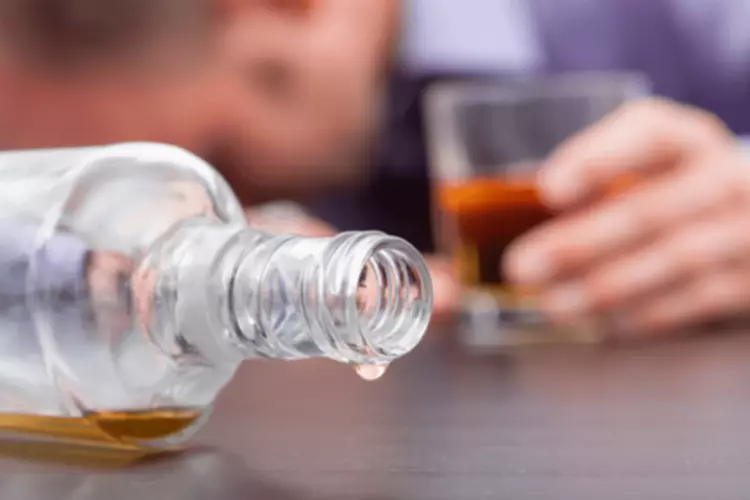How Long Does Alcohol Stay in Your System? Blood & Urine
If you drink excessive amounts of water it can lead to water intoxication or poisoning, which affects brain function due to the swelling of cells, including brain cells. This swelling increases pressure within the brain, leading to symptoms like confusion, drowsiness, and headaches. In severe cases, it might result in high blood pressure and a slowed heart rate. Once alcohol enters your bloodstream after you drink, your body starts to break it down and metabolise a portion every hour. Your body flushes the alcohol out of your system steadily but slowly.
Will drinking water after alcohol consumption lower the alcohol content in my blood?
If you don’t like drinking water straight up, you can add a little flavoring to it. After the first week, it is recommended that you go back to drinking at least 64 ounces of water every day. Ninety percent of the time, the alcohol goes through the liver, and only around 10% of it gets out through sweat and urine. Recognizing the symptoms and risks of alcohol withdrawal is crucial for a safe recovery journey. Seeking professional help and embracing a holistic approach can improve the chances of successfully overcoming alcohol dependence. It can take anywhere from a few hours to over 12 hours for alcohol to leave your system and for you to be completely sober.
Alcohol, Women & Breast Cancer Rates in Scotland
If you’ve been drinking heavily and/or regularly, suddenly stopping or cutting back on alcohol can cause physical and psychological symptoms of withdrawal. The severity will depend on how long you’ve been using alcohol and how much you normally drink. The half-life of ethanol is about 4 to 5 hours, which means it takes that long to eliminate half of the alcohol ingested from the bloodstream. For most people, alcohol is absorbed into the system more rapidly than it is metabolized. EtG is eliminated from the body over time after you drink water and other fluids that flush it out when you urinate.
How To Flush Weed Out Of Your System Fast 24 Hours THC Detox Guide – Onlymyhealth
How To Flush Weed Out Of Your System Fast 24 Hours THC Detox Guide.
Posted: Sat, 02 Dec 2023 08:00:00 GMT [source]
Factors That Might Affect How Long Alcohol Stays in the Body
- Heavy drinking can eliminate vitamins and minerals from the body, which can lead to a hangover.
- Just like other forms of illegal drugs, alcohol can easily stay in the body, reflecting in the urine test result.
- Others accumulate over time and significantly affect your physical and mental health and quality of life.
This is why a positive test should be confirmed either with another test or with verification from the person that they did indeed drink alcohol. It’s also important to know how much alcohol is in your drink because that will determine how long it takes to metabolize your drink. For example, some beers have a higher alcohol content, affecting how much alcohol you consume from one drink. The more alcohol a person drinks, the longer it takes for the alcohol to get out of their system. If a person has alcohol intoxication, any alcohol they drink will remain in the body for several hours and continue harming the brain and vital organs.
Can drinking large quantities of water help a hangover?
This will help wash off the last traces of alcohol in your body and bring delicate tissues back to life. The minute you take in and drink alcohol, the metabolization process starts. How long this will take depends on the amount you drank and your current state of health. The blood distributes the metabolized drug to all your body parts.
- Caffeine is a stimulant, which can perk you up and reverse some of alcohol’s effects.
- Your liver metabolises and eliminates 95% of the alcohol you consume.
- It’s crucial to be patient and allow your liver to perform its functions effectively.
- As you get older, your liver works more slowly, so it takes longer to excrete alcohol.
How Your Body Metabolizes Alcohol

In an interview with David Seitz, MD, medical director for Ascendant Detox, he said that all three tests are accurate. The complex carbohydrates in whole grains help absorb the extra alcohol in your system and provide much-needed B vitamins that are lost when you drink. As mentioned above, it is not advisable to do the withdrawal process on your own. You can, however, take tips and suggestions on how you can make the experience a little easier.
With a focus on practical advice, we aim to equip you with the knowledge to responsibly manage alcohol’s impact on your body. Women who drink their normal amount of alcohol prior to menstruation will experience higher BACs than they otherwise would. It is possible for your system to still have enough alcohol in it the next morning that you could fail a urine or blood test for driving under the influence. You would definitely have a problem trying to pass a test that is designed to detect the presence of any alcohol. Just as family history plays a role in the development of an alcohol use disorder, how quickly the body processes and excretes alcohol also has a genetic link.
How Long Can You Detect Alcohol in the Body?
The best way to prevent alcohol flush is to limit alcohol consumption or avoid it altogether. Drinking plenty of water is one of the best ways to flush alcohol from your system. Water helps to dilute the alcohol in your urine and can speed up the elimination process. how to flush alcohol from urine Aim to drink at least eight glasses of water per day, and even more if you have been drinking alcohol. How to Flush Alcohol From Urine – Before we dive into how to flush alcohol from your urine, it’s important to understand how alcohol is processed by the body.
Get plenty of rest.
Alcohol detoxification programmes are treatment plans created for people dealing with alcohol dependency. Residential rehab is especially advantageous for those who struggle to remain sober and need assistance to overcome their addiction. Several studies have shown that alcohol elimination rates in humans are typically between 0.12 and 0.16 g/L/h. Stress can cause a slight uptick in elimination rates, making it 0.18g/L/h on average. How these enzymes function and other factors, such as genetics, will determine if someone is at risk of developing alcoholism or is alcohol intolerant.




 PAIEMENT 100% SÉCURISÉ
PAIEMENT 100% SÉCURISÉ